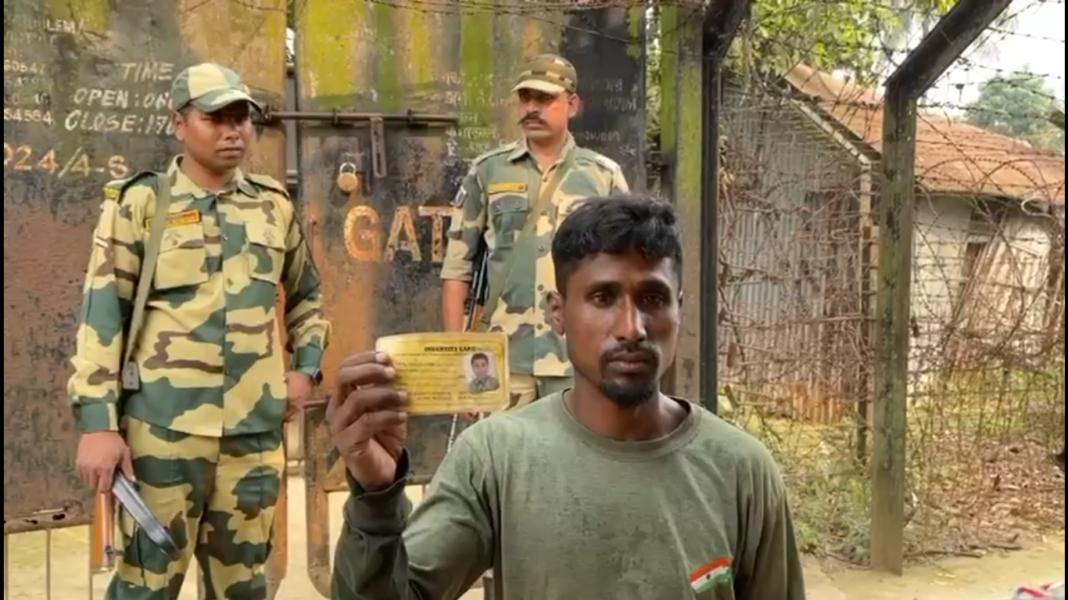Agartala, April 18: For nearly two decades, hundreds of Indian residents living across the barbed wire fence that separates India and Bangladesh have remained unaltered, despite successive election cycles and promises of change from political leaders.
Tripura shares an 856 km border with Bangladesh and has witnessed over 95 percent of its border fenced with barbed wire to curb cross-border smuggling and crime. These border residents find themselves living at the mercy of Bangladeshi border guards and criminals once the border gates close at sunset, despite being bonafide Indian citizens. The residents in the areas get little access to basic services and freedom as enjoyed by other citizens. This ongoing struggle has persisted despite assurances from political leaders to address their concerns and improve their living conditions.
The Election Commission, in consultation with the Border Security Force (BSF), has decided for eligible voters residing outside the fenced area to cast their votes in the upcoming elections.
Tripura CEO Puneet Agarwal announced that around 1500 voters living within 150 yards of the border fencing will have the opportunity to vote, with border gates remaining open on polling day.
Border residents are demanding more than just the right to vote. They seek comprehensive compensation and resettlement plans to address their long-standing grievances and enable them to access government services and schemes like other citizens.
The process of erecting this border fence began nearly two decades ago, with an aim to reduce border crime, infiltration, and insurgency. While the fence has achieved some success in these areas, it has also introduced new challenges for the border population.
The socio-cultural ties between the populations on both sides of the border have been deeply intertwined for generations, with many families having relatives and close neighbours on both sides. The construction of the border fence, mandated to be 150 yards inside Indian territory as per the Indira-Mujibur agreement, has disrupted the lives of many residents living near the zero point.
While most affected families have been resettled, some still cling to their ancestral lands outside the fence, refusing to abandon their homes without adequate compensation and livelihood.
Although gates have been installed at certain points in the fence to facilitate movement, residents complain of restricted access and security-related hurdles, impeding their daily lives and freedoms.
The residents stated that the government’s focus should extend beyond election promises and to ensure their well-being and rights as bonafide Indian citizens.
As the election approaches, the plight of these border residents serves as a reminder of the ongoing challenges faced by marginalized communities, despite political rhetoric and promises of change. Their voices highlight the urgent need for meaningful action and solutions to address their concerns and improve their quality of life.
Read: First phase polling: Check out prominent candidates from Northeast
WATCH:
Find latest news from every corner of Northeast India at hubnetwork.in, your online source for breaking news, video coverage.
Also, Follow us on-
Twitter-twitter.com/nemediahub
Youtube channel- www.youtube.com/@NortheastMediaHub2020
Instagram- www.instagram.com/ne_media_hub





